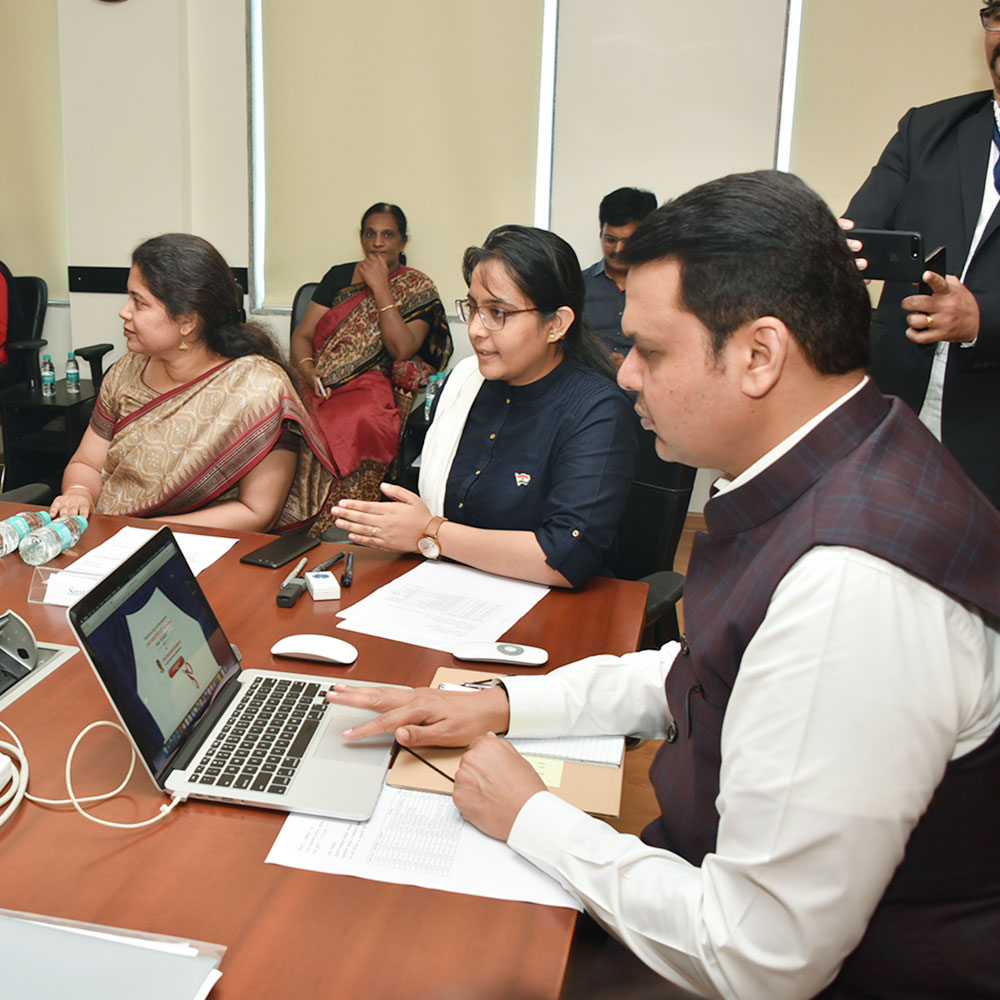Maharashtra began adapting Blockchain technology to ramp up E-Governance transparency.
Blockchain is currently the most advanced cryptography that is expected to revolutionize the way transactions are done over the Internet. Devendra took initiatives to adopt the Blockchain technology to ramp up E-Governance transparency. Blockchain will transform E-Governance to provide:
- Hackproof, tamperproof transactions
- Distributed information ensures damage proof data
- Facilitates collaboration and tracking of all kinds of transactions and interactions from anywhere and without the need of any intermediary.
Initially, the areas where Blockchain is used are financial inclusion, land records, asset transactions, supply-chain financing, goods and farm insurance, and motor vehicle registration.
Empowering women in villages through the Digital India initiative.
Partners for Urban Knowledge Action and Research (PUKAR), a Mumbai-based independent research collective was involved to partner the government in its efforts to increase digital literacy and access to E-governance in the tribal villages of Maharashtra.
Through PUKAR the government provided training and help to the villagers to secure the benefits meant for them under various government welfare schemes and become more aware of their rights, with an emphasis on uplifting women, including increasing their participation in Panchayats and Gram Sabhas.
E-inclusion to close the gaps in Digital India!
Under Devendra, Maharashtra was able to take the full benefit of Digital India by not only providing lost-cost and easy-access technology to villagers but educating them on how and why they should use them.
Bringing transparency in the real estate sector
After coming to power Devendra Fadnavis had taken a series of measures to bring transparency and increase the ease of doing business in the real estate sector.
As a result, the builders and developers were able to obtain permission to start construction within seven days from their respective municipal authorities or district authorities if the building plan submitted by them is in accordance with any of the 57 building designs approved by the government.
Earlier, they would have to run around several departments to secure their NOC, which would lead to corruption.
Besides this, the then CM, Devendra Fadnavis announced a higher floor space index (FSI) for the buildings meant for industrial and educational activities and also decentralized the powers to make such FSI available at the district collector level. Earlier, files to grant higher FSI for industrial and educational activities had to be approved by the Chief Minister only.


